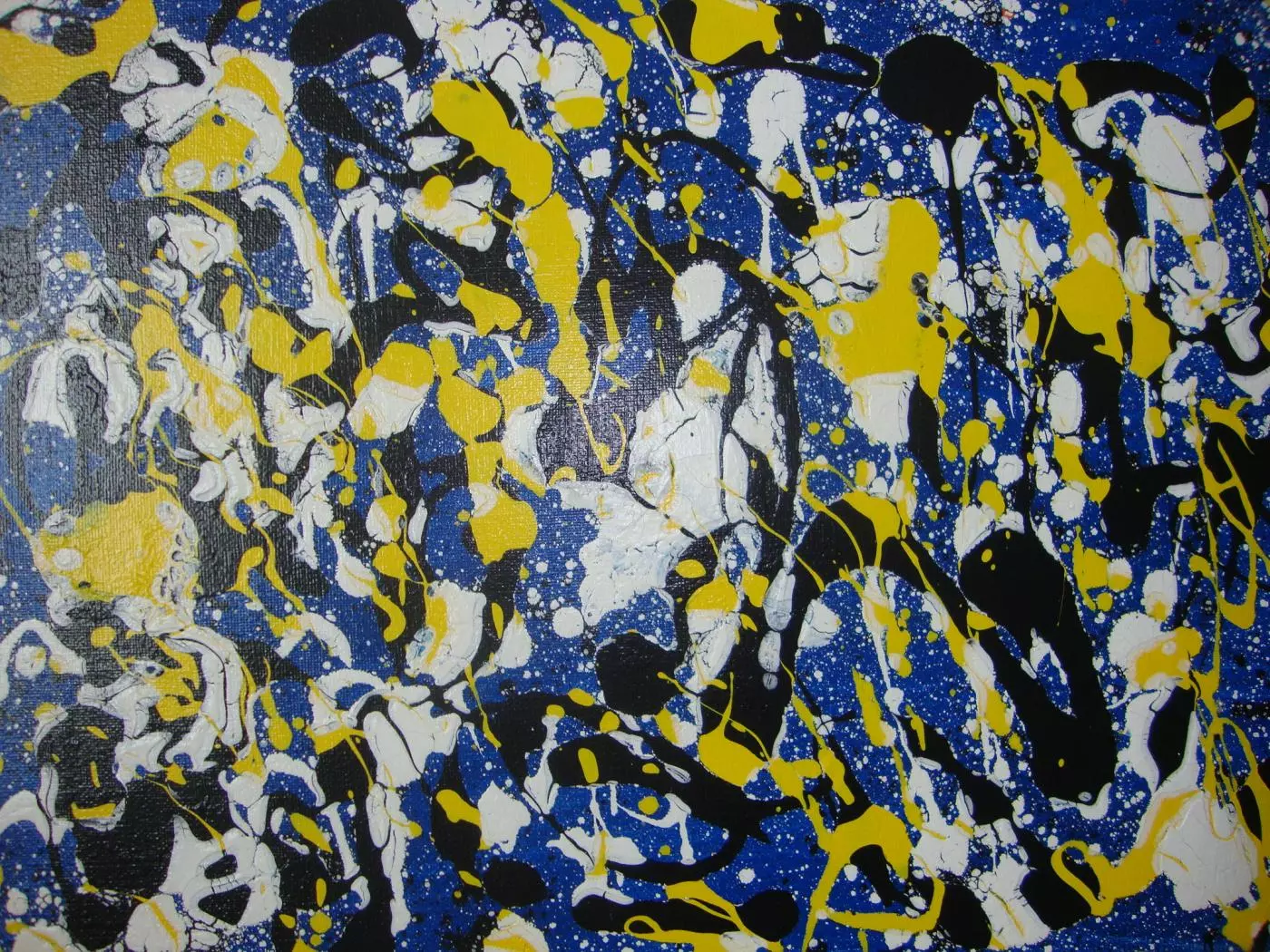The style was widespread from the 1940s until the early 1960s, and is closely associated with abstract expressionism (some critics have used the terms action painting and abstract expressionism interchangeably). A comparison is often drawn between the American action painting and the French tachisme.
The term was coined by the American critic Harold Rosenberg in 1952[26] and signaled a major shift in the aesthetic perspective of New York School painters and critics. According to Rosenberg the canvas was "an arena in which to act". While abstract expressionists such as Jackson Pollock, Franz Kline and Willem de Kooning had long been outspoken in their view of a painting as an arena within which to come to terms with the act of creation, earlier critics sympathetic to their cause, like Clement Greenberg, focused on their works' "objectness." To Greenberg, it was the physicality of the paintings' clotted and oil-caked surfaces that was the key to understanding them as documents of the artists' existential struggle.
James Brooks, 1957, Tate Gallery









 Share / Save
Share / Save






Comments 0
Say something